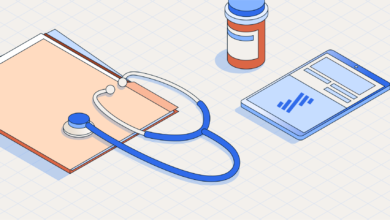
More Than Stress? 5 Symptoms of Anxiety
Anxiety disorders are the most common mental illness in the U.S., affecting about 40 million people annually.
Anxiety is a feeling of worry, nervousness, or unease about an upcoming event. It can be a normal reaction to stress in your life, but it can be a sign of an anxiety disorder when it becomes chronic or excessive.
This blog post will list five symptoms of anxiety that you should look out for and ways to manage them.
Table of Contents
1. Feeling Restless or on Edge
Do you feel like you can’t sit still? Are you constantly fidgeting, tapping your foot, or playing with your hair? This is a common symptom of anxiety.
What to do: Try to find an activity that will calm you down, such as yoga, meditation, deep breathing exercises, or listening to calming music. You can use the best breath training app by breathwrk to help you relax and relieve anxiety.
You can also carry around a stress ball or some other type of fidget toy to help keep your hands busy.
2. Sweating or Trembling
Do you feel like you’ve just run a marathon? Are your palms sweaty, hands shaking, or legs jittery? This is another sign of anxiety.
What to do: Try meditation with calming music in the background. You can also take deep breaths by slowly inhaling through your nose for about five seconds, then exhale out of your mouth until all air has left your lungs. Repeat this breathing pattern several times if needed.
Another option is to focus on something that will distract you from what’s making you anxious, such as listening to empowering songs or thinking positive thoughts.
3. Being Easily Frightened or Startled
Loud noises, scary movies, and startling situations can cause symptoms of anxiety. It’s okay to be afraid, but when your fear is so intense that it prevents you from doing everyday things, this might mean you have anxiety symptoms.
What to do: If too much anticipation causes symptoms of anxiety, then try planning for the event ahead of time. This will help take some stress out of the situation because you’ll know what to expect, even though it may still feel uncomfortable.
An alternative is to consider therapy for anxiety, which can help you understand and manage your fears more effectively.
4. Feeling Nauseated or Sick
Do you feel like you might vomit? Are you constantly queasy and lightheaded? This is another common sign of anxiety.
What to do: Try drinking lots of fluids, eating light and healthy snacks, and avoiding caffeine, alcohol, and spicy foods.
You can also take ginger supplements or drink ginger tea before meals to help ease symptoms. If nausea persists for an extended period, it’s best to see your doctor for further evaluation.
5. Racing Heart or Chest Pain
Do you feel like your heart is pounding out of your chest? This is another sign of anxiety.
What to do: Try deep breathing exercises, meditation, and visualization techniques. These methods can help slow down your heart rate and ease symptoms of anxiety.
If the symptoms persist, it’s best to see a doctor for further evaluation. Chest pain can signify other serious health conditions such as a heart attack.
Symptoms of Anxiety You Must Know
Keep in mind that symptoms of anxiety are prevalent, and everyone will experience them at some point. But if your symptoms make it difficult to carry out even the simplest tasks, then it’s best to seek anxiety help from a doctor. They are likely to recommend anxiety therapy.
We hope this blog post was helpful and provided some helpful information on symptoms of anxiety. If you’d like more tips, keep checking our blog.








